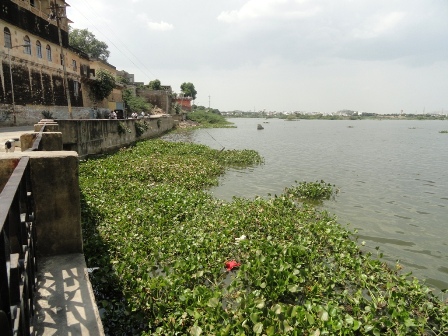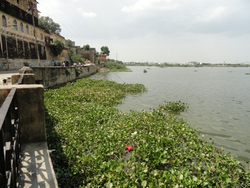Key concerns and potentials identified at AdoptIUWM stakeholder workshops

The EC funded “Adopting Integrated Urban Water Management (AdoptIUWM) in Indian cities” (AdoptIUWM) project that was launched in early July this year, witnessed, during the months of September and October, the first set of stakeholder workshops being held in Kishangarh and Jaisalmer (Rajasthan); and Solapur (Maharashtra). The participation level was impressively high in all three cities, with a line-up of esteemed representatives from various government departments, NGO’s, citizen representatives and other institutions like the Public Health Education Department (PHED) Rajasthan, Rajasthan Urban Infrastructure Development Project (RUIDP), Central University of Rajasthan, Vivekananda Institute (Solapur) and others.
These workshops began with ICLEI introducing the project to the cities and the city representatives outlining their respective ongoing schemes and the need for adopting Integrated Urban Water Management approach. ICLEI South Asia also presented an analysis of the present scenarios in all cities and helped cities recognize their key concerns. The stakeholders at the Jaisalmer workshop brought forth the need for conservation and documentation of Jaisalmer’s traditional rain water harvesting techniques and systems. The ICLEI South Asia team also visited some of the traditionally interlinked ponds in the city. Solapur stakeholders showed great enthusiasm in getting trained in various aspects related to Integrated Urban Water Management (IUWM) so that they can further train the youth and other citizens. Kishangarh workshop brought to light the existing initiatives towards water and environmental conservation being undertaken by the citizens on a voluntary basis. The citizens of Kishangarh expressed concern over the extent of pollution of the ponds in the city due to wastewater discharge and marble waste which enters the ponds with runoff.
The cities also expressed the need for raising awareness about IUWM related issues amongst general public, most importantly the youth, who would be more readily available to volunteer and help cities work towards their goals under the AdoptIUWM project.
